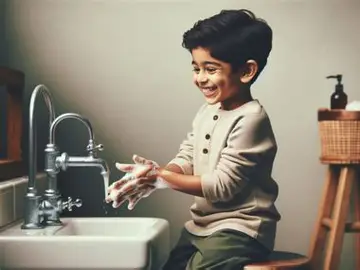Herein this article, we discussed The Foundation Years: More Than Just Playtime, Hygiene Is More Than Clean Hands, The Science Supports It, Hygiene Boosts Confidence, Creating a Culture of Clean from the Start.
Imagine a world where handwashing is second nature, where children cover their mouths when they sneeze without being reminded, and where personal space and cleanliness are respected by default. This isn’t just a parental dream—it’s a possible reality, and it begins with one simple principle: start hygiene education early
The Foundation Years: More Than Just Playtime
Early childhood—roughly from birth to age 8—is a period of rapid brain development. During this time, children are not just learning their ABCs and how to tie their shoes—they’re also forming the building blocks of lifelong behavior. What they see, hear, and practice during these years sticks.
Incorporating hygiene education into early learning isn’t just a health precaution; it’s an investment in a child’s lifelong well-being.
Hygiene Is More Than Clean Hands
When we think about hygiene, our minds often jump to handwashing—and yes, that’s a critical part—but it’s only one piece of the puzzle. Hygiene education includes:
. Personal hygiene (bathing, brushing teeth, nail care)
. Toilet hygiene (proper use and cleanliness)
. Food hygiene (washing fruits, understanding safe eating habits)
. Environmental hygiene (keeping surroundings clean and germ-free)
. Social hygiene (covering coughs, not sharing utensils, respecting boundaries)
These aren’t just health practices—they’re life skills.
The Science Supports It
Studies consistently show that hygiene education in early childhood reduces the spread of infectious diseases like colds, flu, and diarrhea. Schools and daycares that actively promote hygiene practices see fewer absences and healthier kids. This translates to less time off for parents, fewer doctor visits, and stronger immune systems for children.
Even more compelling? Research suggests that habits formed before age 9 are more likely to stick into adolescence and adulthood.
Hygiene Boosts Confidence
Good hygiene isn’t just about avoiding illness—it also nurtures self-esteem and social confidence. A child who learns how to take care of their body feels more in control. They’re less likely to be embarrassed about bad breath or dirty clothes, and more likely to participate in group activities and friendships.
For children from communities with limited access to hygiene education at home, schools can be a powerful equalizer.
Creating a Culture of Clean from the Start
So how do we make hygiene education an early priority?
- Integrate it into daily routines. Teachers and caregivers can turn tooth brushing or handwashing into fun songs and games.
- Use visuals and storytelling. Children love stories—why not tell one about a superhero who fights germs?
- Model the behavior. Adults need to show, not just tell.
- Praise the effort, not just the outcome. Reward consistency and try to make hygiene feel like a point of pride, not a chore.
Beyond the Sink: Hygiene and the Future
In a post-pandemic world, hygiene isn’t optional—it’s essential. Teaching kids about cleanliness is no longer just a matter of personal health; it’s about public responsibility. The earlier we start, the more naturally children internalize these values and habits.
Hygiene education in early childhood empowers young minds to make healthier decisions, protect themselves and others, and grow into adults who value cleanliness, responsibility, and respect.


